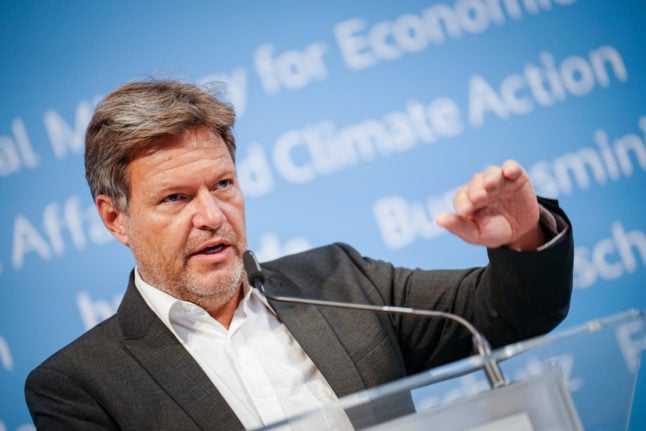The terminal for the import of LNG will be installed at the port of Wilhelmshaven on Germany’s northwest coast and is planned to come online at the end of 2023.
Germany has been scrambling to find new sources of gas as deliveries from Russia have dwindled in the wake of the invasion of Ukraine.
The drying up of supplies via pipelines connecting Russia with Germany has sent prices for fuel and electricity soaring.
In response, the German government has fired up mothballed coal power plants, while evaluating a controversial extension to the lifetime of its
nuclear power plants beyond the end of the year.
It has also launched an energy-saving drive ahead of winter.
READ ALSO: What to know about Germany’s energy saving rules
“It is astonishing that we have reduced the dependence on Russian gas so quickly with the development of new infrastructure, compared to the decades it took to become dependent on Russia,” Economy Minister Robert Habeck said at a press conference.
For future winters, the newly chartered floating terminal should fill the gap left by Russian gas imports, which covered 55 percent of Germany’s demand before the war.
The new unit, to be operated by a consortium including energy companies EON and Engie, is set to have a capacity of “at least five billion cubic meters per year”, according to the ministry.
The five government-chartered terminals have a total capacity of 25 billion cubic meters per year, with the first set to start pumping gas around the end of this year.
A further private project in Lubmin on Germany’s Baltic coast is set to have a capacity of 4.5 billion cubic meters per year, while another private
terminal in Rostock is also in the works.
Together, the private and public projects will cover “about a third” of Germany’s total gas demand, according to the ministry.
In time, the government plans to convert the fifth terminal location in Wilhelmshaven to the importation of hydrogen — “provisionally from 2025”.



 Please whitelist us to continue reading.
Please whitelist us to continue reading.
Member comments